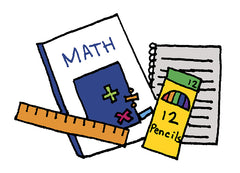(Originally published in a 1992 Timberdoodle catalog.)
How do you teach your children and maintain the rest of your responsibilities? It is not as hard as some might think. First of all, we are very content with being homebodies, so we do not spend huge amounts of time on field trips or on other activities that pull us in too many directions. Second of all, as soon as our children can read, they assume a large measure of the responsibility of getting their school work done. So our first priority is to develop adequate reading skills in each of our youngsters. Some of our children were reading as toddlers, others as preschoolers, but none under duress as some “experts” claim. We don’t profess to be authorities on early childhood learning, but we don’t hesitate to claim expertise in knowing our own children and knowing when they are feeling that learning is no longer a blessing, but instead a burden.
But reading or not, we sit down individually with each child and map out a program of learning for the year. Besides reading, our basic requirements include math, thinking skills, science, geography, art, history, and 2-5 electives. For the older children, history and reading are often combined into one requirement, and there are unlimited other combinations that we have made in the past. Currently the hot electives are French, Sign Language, and What is Electronics?, but there are no limitations on what they choose.
Unit studies work well for electives, and we have had loads of fun hatching quail, raising guinea fowl, and planting an orchard. After determining our long range goals, we set some short term targets. Right now we are planning around our baby’s birth. After so many years of waiting for this blessing, it would be unreasonable for us to expect that the children will want to do anything but be with the baby. So we have planned that most of the year’s requirements are accomplished before December 1. After the first of the year we will spend a portion of each day on drill work so that they will be prepared for our state’s yearly test. The body of the school time will be spent on frills like sewing, quilting, and testing some new products we want to preview before adding to our catalog. I know that I will be still getting my “sea-legs” after the birth of the baby, so I will be doing what I can to minimize my stress level during this time.
After setting these short term goals, we go a step further and break down each topic to what is required on a weekly basis. Because we are so computer dependent, all our lists are maintained on our computers and are printed out once a week for each child’s reference. They are required to finish each item on their list every week.
Aside from activities that we do together, the readers are on their own as to when and where they actually do their schoolwork. When we moved out to a mobile adjacent to our warehouse, we knew that we would never have enough room in the mobile to do school work. So we transformed a loft above our warehouse bathroom into a schoolroom, complete with bookshelves, small file cabinets for each child, and a lovely table Dan and his father spent a lot of time making. So where do the children do their schoolwork? In the car, at doctor offices, on cleared inventory shelves, in the guinea house, in cardboard boxes, and everywhere else imaginable! That’s OK, we are not as fussy about where it is done as we are about how it is done.
For Abel, whose reading skills are still shaky, we are a little more involved. He likewise gets a checklist every week, but I coach him through a fair number of the activities. He works on them in the afternoons, asking questions between phone calls, and generally paces himself so that he is not working very long without a break. He dearly loves to be first to finish his weekly assignments, and generally drives his sisters to distraction by giving them his daily countdown, “Only 10 more pages and I’ll be done for the week!”
So how do we do it all in schoolwork? By insisting on a system of accountability for each child. We have found that children will accomplish far more and learn far better when we stop hovering over them. Children sincerely desire to have as much control as possible over their lives, and this is a wonderful way to introduce them to the adult world of responsibilities and consequences.
Added in 2020
Our curriculum kits now come with an online scheduler to help you plan your school year. Or check out our free online scheduler that can be easily adapted for almost any curriculum.
 Skip to content
Skip to content





